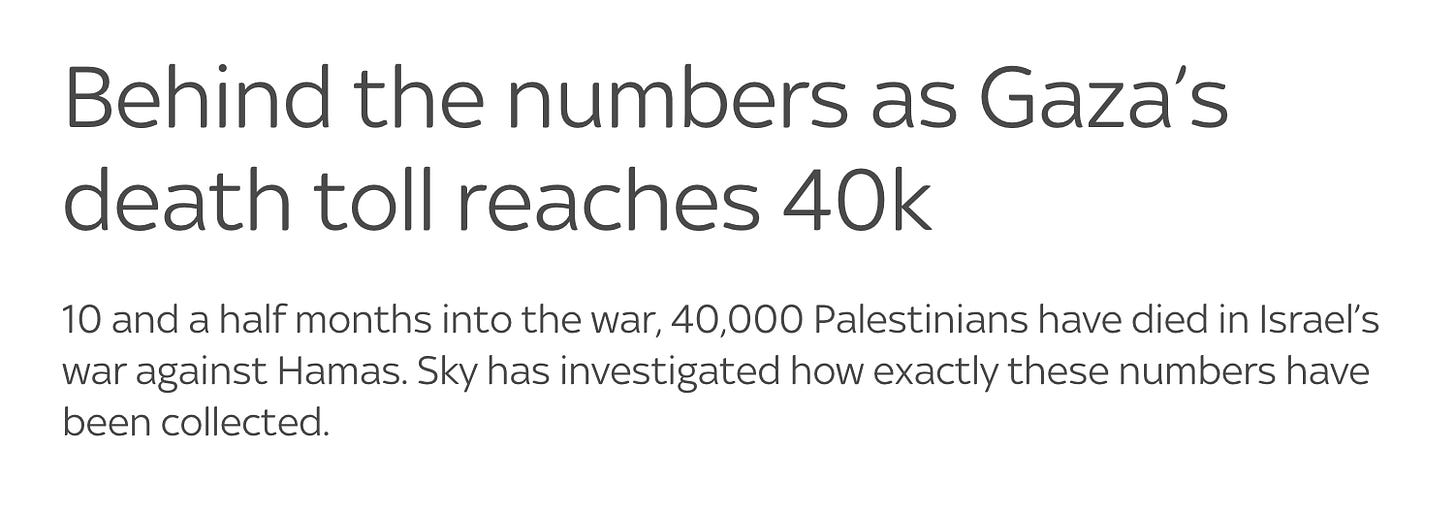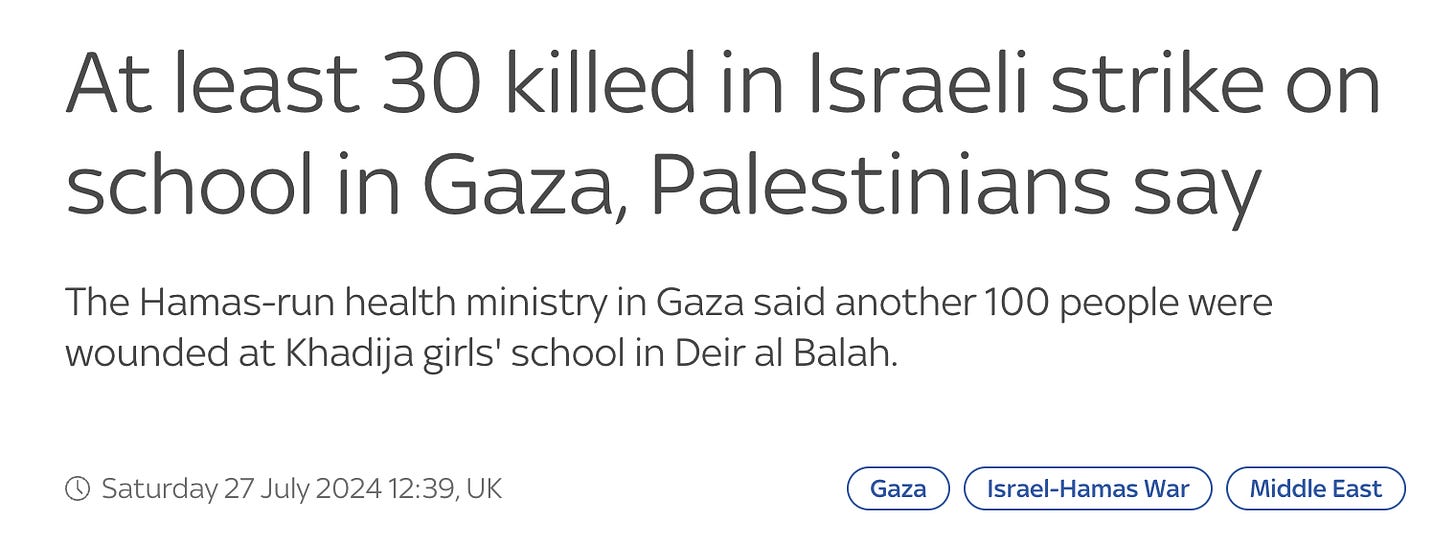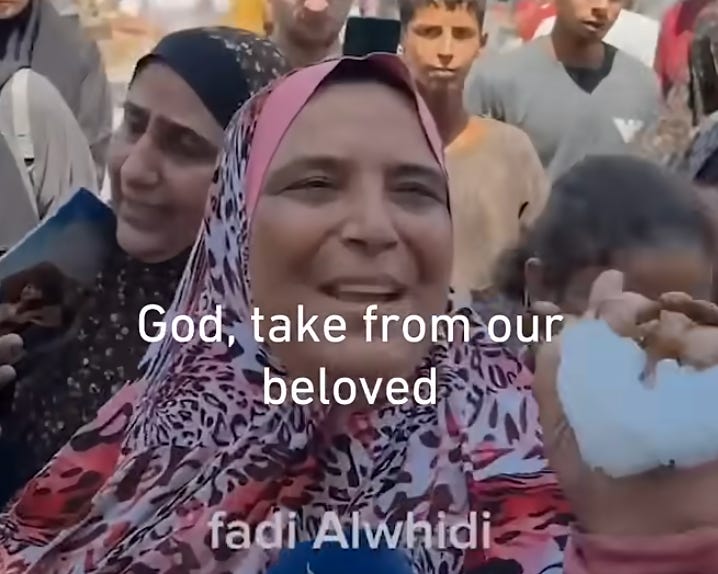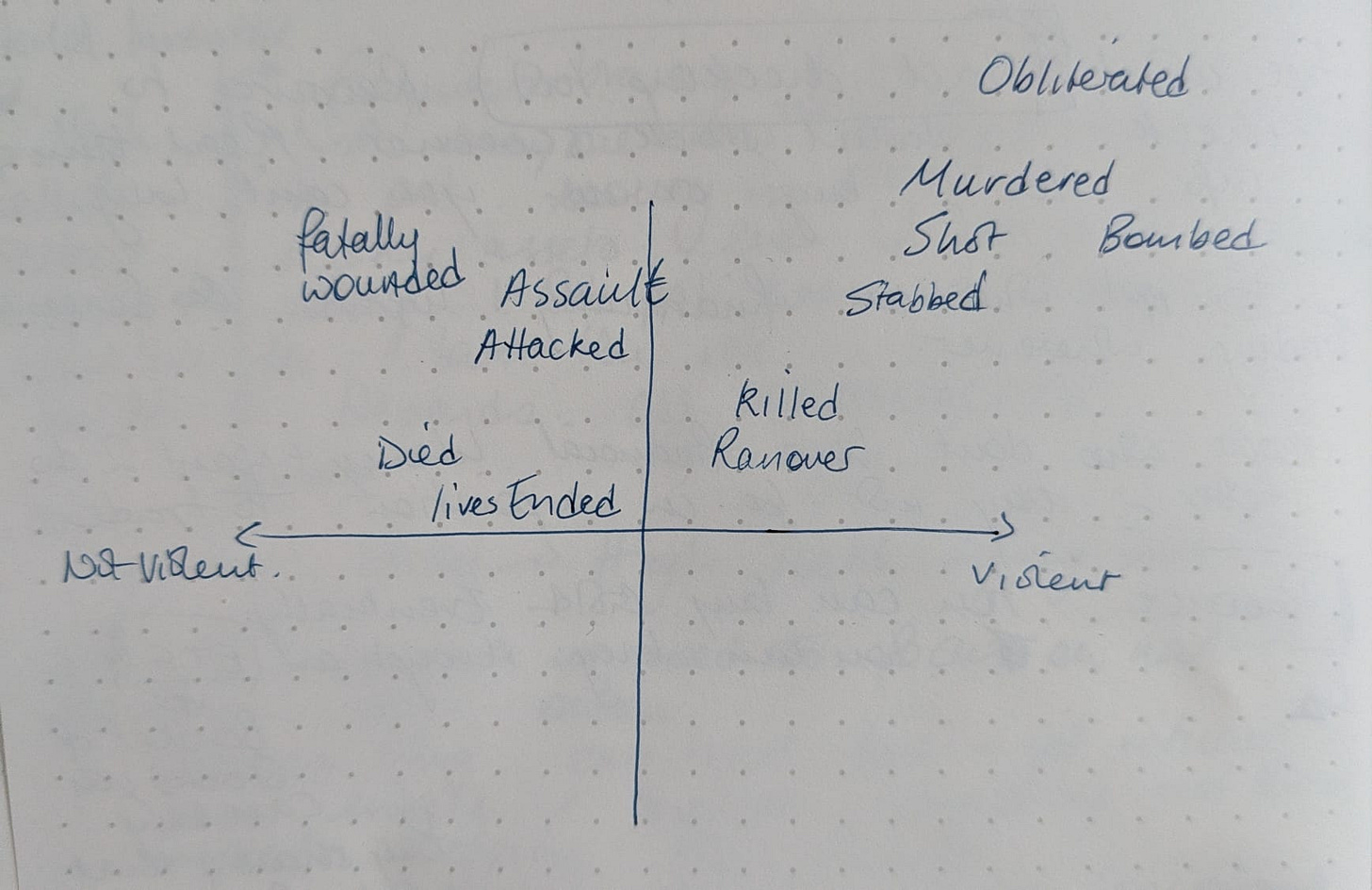The final verb stripping power from the world's least moral army
Removing power from violent actors > removing blame from violent actors
We’re going to shift the way we've been viewing life by looking at verbs to do with death. Several English verbs vs. One Arabic verb.
As always, here’s the punchline incase I lose you halfway through:
Gaza is a repeated reminder that not mentioning the enactor of violence is verbal stripping of power from an entity that thinks they are all powerful*. The word “istash-had” AKA “martyred” is this power strip.
*This has nothing to do with the seeking of justice. Seeking justice is a separate exercise.
If you have watched enough interviews
You will have read the translation “martyred”. We’ve heard young children say this of their parents, parents say this of their young children, elderly of their life-long loves.
This is a mother whose fourth and final living child has returned to the creator. In her words “All four of my children are now with Allah as witnesses, and God willing I will have the honour of joining them”.
There is a beacon of defiance in the Arabic that is left untouched in the English, this is what we will be looking at today. But in order to get to hope and life, let’s start with death.
Our trusted beacon of gaslighting, Sky news
We've seen here the reporting that uses passive language to a level of derangement that you’d have to be numb to not notice. As a reminder, here are a couple of examples of some cognitive dissonance displayed by Sky news.


I actually have to stop at two examples to stop being enraged, and to be polite to you.
But all this to say, the way we report who ended whose life and how, is of paramount importance. To not acknowledge the doer of violence with a violent verb is partaking in the injustice. As a reader trying to make sense of the world, it doesn’t make sense that a news channel would keep giving the benefit of the doubt to an “army” this far into a genocide.
This word choice is an offence on multiple fronts. Not only was life lost, but this reporting makes it feel like there will be no justice served, from us hearing about it in present day, to the way it’ll be shared in history.
So, how can we have hope?
And who’s doing what to who?
You’ll notice that in the examples of these two headlines, there needs to be a verb picked to depict how the person’s life ended if another person is involved. And we implicitly have in our minds a spectrum of emotions attached to these verbs. If we were to plot them from most to least emotive, it might look like this:
While not a perfect science, we can all agree that when there is a do-er of violence, there are many different ways we can explain the end of life. This verb choice will translate intent, amount of violence, accountability and likely other messages all wrapped in one verb.
And in the English language, if we do not express it. It is insincere at best, malicious at worst.
Not so in the Arabic.
To get to the way this is expressed in Arabic, let’s fist conjugate some Arabic verbs.
He rested: استراحة
He woke up: استيقظ
He surrendered: استسلم
While I understand these may look like squiggles, the thing they have in common is the first 3 letters.
است… = ا س ت
To start a noun with these letters is to give the doer of the verb has agency in the action. The person doing the action is the only participant in this short one word story.
The translation for martyred is:
استشهد
It starts with the three letters, “است” and then conjugates the verb: “شهد”.
It loosely translates to martyred, it more accurately translates to “he chose to bear witness”.
There is implicit agency in the verb because of the beginning 3 letters. Depending on which vowel you pick, the only person being mentioned to explain that this person is no longer here in this life, is the person themselves.
The power strip
This positioning negates the need for a spectrum of violence, it voids the need to acknowledge the doer who believes they had power in the situation. It strips them of their involvement. They have no power simply because they have no power.
And this isn’t even starting on the verb’s meaning itself. The verb “شهد” means to “bear witness”. To a person who doesn’t follow a faith, it may seem counter intuitive that the person’s last act on this earth was bearing witness, vs. being a victim of violence.
But again, this is part of the power strip. To the Muslim-Arabic listener, it’s a reminder that there can be doers of harm, but your end is written, your end can only come by the creator of life itself. So as a final act, this decision had nothing to do with the perpetrator.
I suspect this leaves the question of justice unresolved
Which I think is only right we raise here. To allow this person’s end to have the agency they always had, does not mean at all to absolve the doer of harm. Justice and power are two completely separate pillars.
So rest assured, the injustice is registered. But we are addressing those who have internalised that humans that share this life do not have the capacity to serve the required justice.



